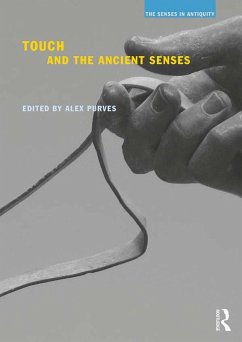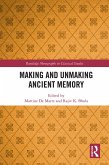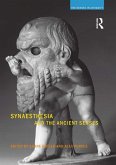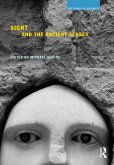The essays in this volume explore the ways in which touch plays a defining role in science, art, philosophy, and medicine, and shapes our understanding of topics ranging from aesthetics and poetics to various religious and ritual practices. This is the first volume of its kind to explore the sense of touch in antiquity.
Dieser Download kann aus rechtlichen Gründen nur mit Rechnungsadresse in A, B, BG, CY, CZ, D, DK, EW, E, FIN, F, GR, HR, H, IRL, I, LT, L, LR, M, NL, PL, P, R, S, SLO, SK ausgeliefert werden.
"Purves' volume provides a powerful corrective to sight as the preeminent sense in Classical scholarship. As each essay demonstrates, touch blurs the boundaries between subjective and objective experience in providing what Purves calls a "feeling for the past." This volume is required reading for scholars interested in the relationship between perception, cognition, and affect in interpreting ancient texts and artifacts."
- Karen Bassi, University of California Santa Cruz, USA
"Touch and the Ancient Senses provides a useful introduction to this changing area of the field ... this study is often fascinating and it contains many seeds for further discussion ... an elegant overall structure, with Aristotle's problem as a thread running from the first sentence of Alex Purves' introduction to the last sentence of the final chapter. This is an appropriate frame for a topic that puzzled philosophers and physicians throughout antiquity."
- Kenneth Silverman, University of Florida, USA, Bryn Mawr Classical Review 2018
- Karen Bassi, University of California Santa Cruz, USA
"Touch and the Ancient Senses provides a useful introduction to this changing area of the field ... this study is often fascinating and it contains many seeds for further discussion ... an elegant overall structure, with Aristotle's problem as a thread running from the first sentence of Alex Purves' introduction to the last sentence of the final chapter. This is an appropriate frame for a topic that puzzled philosophers and physicians throughout antiquity."
- Kenneth Silverman, University of Florida, USA, Bryn Mawr Classical Review 2018









